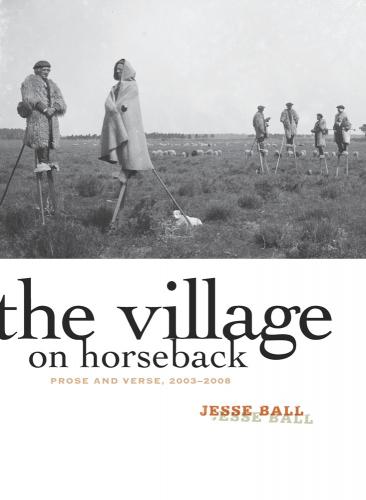But don’t be concerned for me. This sort of thing is what everyone does when everyone does it. And everyone who doesn’t does play along, or at least watches from the wings as those who do do what they do, whether well or wantonly.
In another hour, we shall burn the town to bits. I’ve always wanted to, and now we’re in cahoots. It’s a wonderful thing, being in cahoots. One can’t help but prefer it. We’ll all sit on the hill outside of town and laugh and hold hands with pretty girls and boys while pretty girls and boys laugh and hold hands with us.
And the sky will stream fitfully across the sky, its sails filled by the same wind that prompted us this morning when we rose, rosy cheeked and hamhanded from our all-too-narrow beds, filled with the same rippling restless pleasure that even now sits like a lantern in my youthful throat.
Bestiary 2
A ninety-five-year-old pilgrim is at the door.
She’s knocked three times. Each time
she knocks, a knuckle in her hand breaks.
She wants a cup of water.
The desert here is wide.
In fact, this is the widest point.
Sometimes I like to go up to the roof
and ring our huge bell.
The sound floats in the air
like some hundred ships
all tossed on a single wave.
It moves out across the sand,
and nothing stops it. I think it can
go forever. I think of places the sound
goes. Cottages, little green
hedgerows, gardeners looking up.
“Oh, it’s time for lunch,” they must say,
“there’s the bell.”
A Turn
So many people had come by asking for water that day
that I took the last one with me to the well.
We both climbed in. It is, you know, one of my favorite places.
At the bottom, I have set up a fine little room
with soft cushions and a phonograph.
“What would you like to hear,” I ask her.
She says, “Mozart, I guess,” and darts
her little tongue at me, coyly disengages a dress strap.
“Oh you deipnosophists are all alike!” I shout,
and put on Brahms to spite her.
In response, she wags her tail. It is long and soft,
most alluring. Alluring, one might say,
if one lived in a house in the desert.
Who knew, I ask you, who knew when I was a child
that I would one day be made a present
of such a lovely girl as this?
That Season
That season there were comedies in every playhouse.
One drought had followed another until certain countries
relied solely upon humor to survive their harsh winters.
At the time I had just begun an illustrious career
as a trainer of soldiers. I didn’t further the war—it was
against my interest. But I taught one skill to the troops:
how to stand immediately behind their opponents.
A fight would start. The enemy would lunge,
and there I would be, standing behind him,
from where I might do what I liked to help or hinder
his passage through the war. The trick, of course,
was in a particular grin and a twisting of the limbs
which accompanies the sudden shift right or left.
The whole thing was rather funny, or so I thought,
as the enemy was employing experts to accomplish
precisely the same gain. The upshot? A battle
in which two armies twirled around like dancers
in some avant-garde ballet. Everyone came out
to the countryside to watch. It was the start
of a short but bloodless epoch in world history.
Bestiary 3
And then one day the pilgrimage route changed. No one wanted to see the pillar in the desert, and so I had no more visitors. It was sad really, or so I thought at first. But then I went back to the history book I was writing.
Such a book . . .
It doesn’t even use our verbs. They’re too
pointed. Only causeless words
can please, a record without
a point of view. History proper,
for the first time.
Every physical change
in the world listed, along with its place.
I can work only at night, while I’m asleep.
Dreaming, one has time for such things.
Nonetheless, I fall behind. If only I had
an assistant, a really clever one . . .
All hermits begin by pretending to be hermits.
And by liking birds.
First Verse
In the house of my sleeping eye the veins of wood
run from the furniture down into the floor.
When I lay my hands upon the table’s surface
the entire feathered expanse
shifts in flight.
Parades
And when you are finally caught and questioned,
it is discovered, sadly, that you know
nothing of use. Your captors exchange glances, nod.
You are released in the freedom of some afternoon,
some autumn of the year, your coat, hat, returned
as if to continue your life. Now it is you
in the world again. In yellowing rooms, life
becomes no more than the places where it occurs.
At the pier in darkness, parades will cross the water,
visible but once. Or I could say
I saw the wind coming hard along the river touching all it passed.
How are things consequent? When they catch you
again, what will you say? That all things
may
